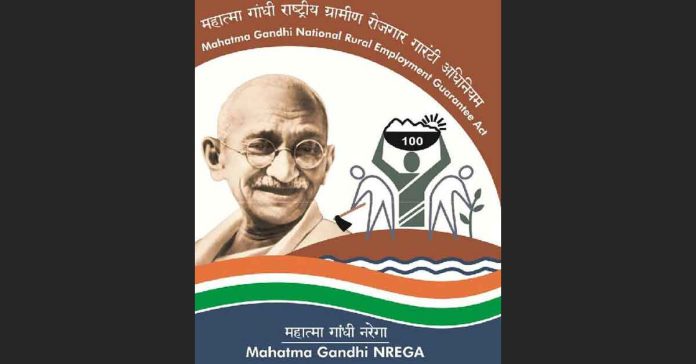Mahatma Gandhi National Rural Employment Guarantee Act 2005 or MGNREGA was earlier known as the National Rural Employment Guarantee Act or NREGA. This act was passed on 23 August 2005. Which was implemented in February 2006 under the UPA government of Prime Minister Manmohan Singh.
MGNREGA is an Indian social welfare measure that aims to guarantee the ‘right to work’.
This act is a Centrally Sponsored Scheme. It is an employment generation program, implemented in consonance with the enforcement of Section 4 of the National Rural Employment Guarantee Act 2005 (NREGA).
The Government of India introduced the MGNREGA social welfare program in 2005 to address the problem of unemployment and poverty in rural areas. Recognizing the high rates of unemployment and poverty in rural India. The gram sabha is the principal forum for wage seekers to raise their voices and make demands. It is the gram sabha and the gram panchayat that approve the works under MGNREGA and fix their priority.
The Features and Benefits of MGNREGA?
- MGNREGA guarantees 100 days of wage employment in a financial year to rural households whose adult members volunteer to do unskilled manual work.
- It provides social protection for the most vulnerable people living in rural India by guaranteeing wage employment opportunities.
- To appreciate the livelihood security of the rural poor through the generation
- of wage employment opportunities in works leading to the creation of durable assets.
- The scheme allows the poor population of India to earn a minimum income by providing their services.
- Under MGNREGA, every rural household is entitled to register.
- Job cards are distributed to all households along with MGNREGA registration.
- Job cards are issued within 15 days of receipt of the application for job card registration.
- The pay is equal to everyone.
According to the source, Since its inception in 2006, around ₹1,10,000 crore (about USD$25 billion) has gone directly. As wage payment to rural households and 1200 crore (12 billion) person-days of employment has been generated. On average, 5 crore (50 million) households have been provided employment every year since 2008.
ALSO READ: A systematic effort by BJP to “erase the ideas” of Mahatma Gandhi in India


